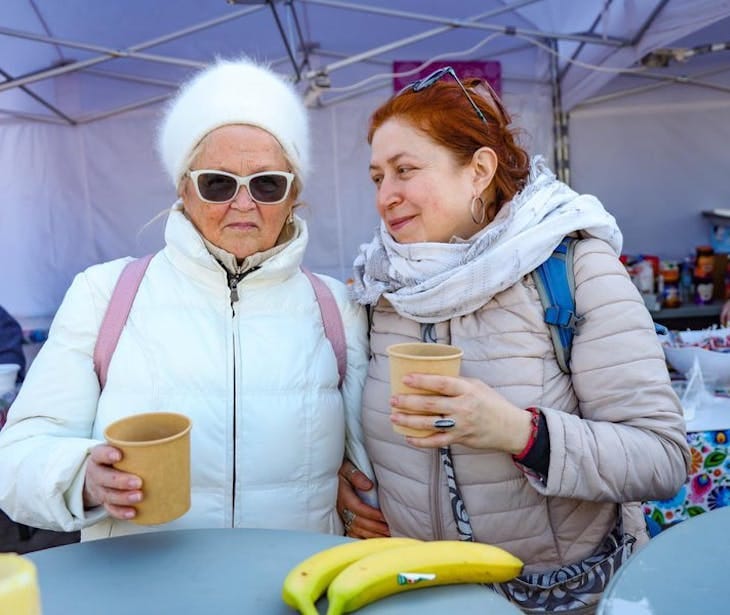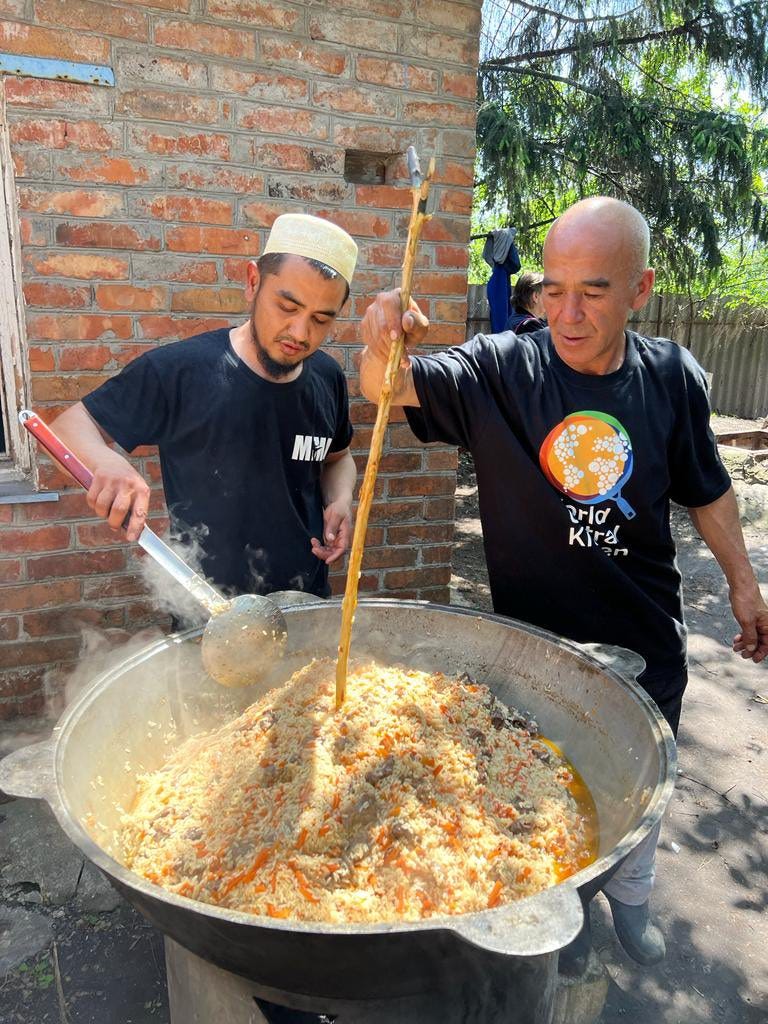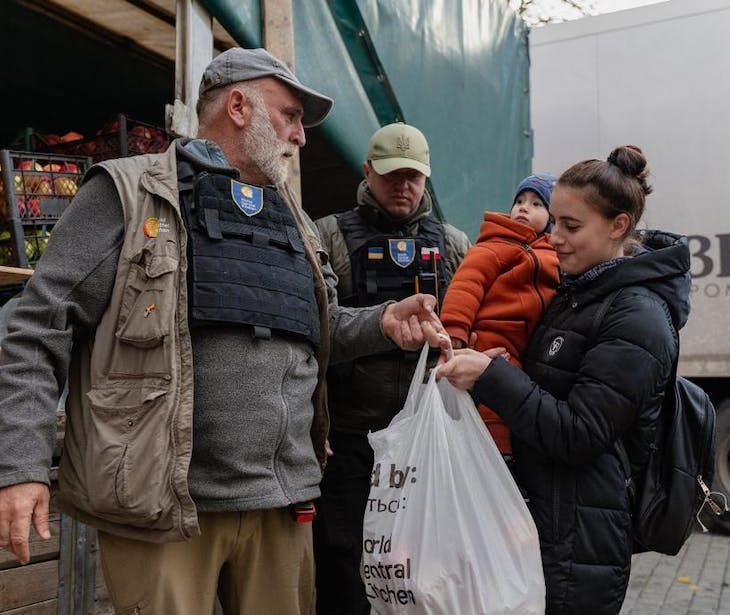My friends, today is a difficult day. I am writing to you from Ukraine, where I have been spending time with the teams of World Central Kitchen.
One year ago, Russia launched a large-scale invasion that quickly escalated to the war we know today. On February 24th, we served our first hot meals to Ukrainians fleeing for safety, starting at a single border crossing in Poland. Since then, we have done what we do best: mobilized a network of cooks, community organizers, and volunteers to provide food when, where, and how it’s most needed. We filled gaps as we found out about them, serving hot meals at many international border crossings, bringing food and hot drinks to train terminals in Ukraine, and sending food kits to newly liberated communities.
One year later, our team—almost entirely Ukrainians who are feeding Ukrainians—has provided more than 210 million meals to support families on the ground in an ever-changing war. With our partners throughout the country, we continue to serve meals every day. We are still here. This is the right thing to do and the only thing to do, because our teams have become a lifeline to these communities and without this support, many families wouldn’t have access to food and in some places, even water. Ukraine is on the right side of history, fighting so that others around the world can continue to enjoy freedom.
Reflecting on this brutal year of senseless war, there are so many people to thank, to think of, to remember. Today, I am thinking about the volunteers who became dear friends and the innocent lives that have been lost. I am thinking of Sardor and Viktoria, two incredible volunteers in their community in Chuhuiv. Sardor and Viktoria worked with WCK, cooking huge pots of food and serving hot meals for their neighbors. Sardor and Viktoria were killed as the slept by a Russian missile strike in July.
Today, I am thinking of the people of towns like Bucha and Irpin, and the city of Kherson, people living in places that were under occupation for months. I was one of the first outsiders to enter Bucha after occupation, along with some of our team and the mayor of Irpin, and knew that the recovery of the people of Bucha would take not days or months, but lifetimes. In Kherson, in the nation’s south, our local team arrived with meals and was met with hugs and tears of joy in the hours after liberation…but there was still danger as they could hear shelling in the city, and the needs there—physical, like electricity and food, as well as emotional—are deep. I was able to visit Kherson a few days later to meet the incredibly resilient people who made it through eight months of siege, and the WCK team who were brave enough to help. Our local teams have continued to work in all of these places, as in many of the liberated cities and towns, bringing meals and hope to devastated communities.
Today, I am thinking of the thousands of Ukrainians who are working every day to help their neighbors make it through every day. The nation’s cooks and chefs who have stepped up to make sure that no one goes to sleep hungry at night. The bakers who keep making bread day in and day out to keep some sense of normal life for their neighbors. The teams that run the train lines, the ones who drive the trucks across the country to deliver food and medicine to communities on the front lines. The musicians and artists who are trying to keep the light of humanity alive. Each one of them, they are my heroes.
We’re still feeding because the people of Ukraine are still fighting…the kitchen lights are still on. And even beyond, we cannot forget that the rebuilding process starts again after every missile attack, every rocket. Ukrainians always have looked ahead to the future, beyond the horizon, to a moment where the country is once again at peace, and can focus on healing.
And we’ve also had our eye on the future—we know this war is not over. The many liberated communities are missing key parts of their infrastructure, with water, energy, and other vital resources cut off. Cities and towns at the front lines of the war are struggling with food access due to issues with the supply chain and the realities on the ground.
And that’s where WCK’s teams can help. We’ve been serving meals every single day for the last 365 days (see more about our work here)…and have seen again and again, the power of food to bring out the best of humanity in the worst of times. This is what we are always saying here, right people? Longer tables!
So I want to thank the many, many supporters and volunteers who have been with us over the last year, those of you who learned about our work here on Substack or on WCK’s social media or elsewhere. If you have the means, a donation to WCK is a way to keep the teams in Ukraine going, to help us fulfill our commitment to the people of Ukraine.










Thank you, all, for your very important and very impactful work.
Gracias